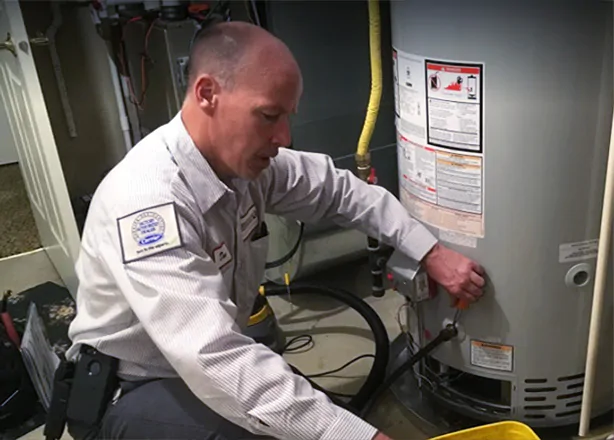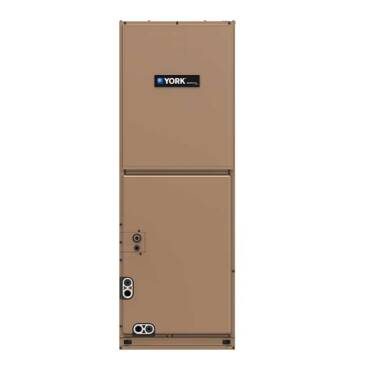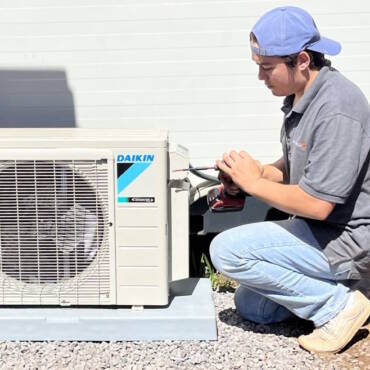You know that feeling when you step into the shower, eagerly awaiting that hot, relaxing stream of water – only to be met with an icy blast that jolts you fully awake? Yeah, not the most pleasant way to start your day. For folks here in Bucks, Montgomery, and Chester counties, a reliable water heater is pretty much essential for simple daily tasks like washing dishes, doing laundry, and making sure you don’t have to chip away at the bathroom mirror with a de-icer.
But sometimes water heaters can be trickier than we give them credit for. How are you supposed to know when yours is on its last legs before you’re caught off guard by a frigid morning shower? Well, that’s where this guide comes in handy. We’re going over all the little signs and signals that your water heater might be getting ready to quit on you – weird clanking noises, funky smells, rusty water. You’ll learn whether some basic repairs could get it back up and running, or if it’s finally time to replace that old tank with a brand new one. No more shivering and suffering through showers!
Common Signs Your Water Heater Needs Attention
We’ve all been there – you go to take a nice hot shower, only to get an unwelcome blast of cold water instead. Or maybe the temperatures are all over the map – searing hot one minute, lukewarm the next. Either way, inconsistent hot water is a real hassle first thing in the morning. But it’s also one of the clearest signs that your water heater is struggling and needs some attention.
Inconsistent Hot Water
Nothing ruins a morning routine quite like having little to no hot water on demand. You try turning up that temperature dial, but nothing – just a pitiful cold trickle emerging. If you’re experiencing a sudden complete loss of hot water or those yo-yoing temperatures, it could mean:
- A sediment buildup is blocking the tank and restricting water flow
- The thermostat has conked out and can’t regulate temperatures properly
- The heating elements are on their last legs and failing to do their job
Either way, no amount of patience or cold showers is going to fix that. Time to call in the pros!
Strange Noises From the Tank
Speaking of strange occurrences, have you noticed any weird rumbling, banging, or popping noises coming from your water heater lately? It’s not having a solo jam session in there – those sounds are actually caused by a buildup of hardened sediment rattling around inside. As that gunk accumulates over years of use, it makes the tank overheat and vibrate like crazy.
Leaks and Drips
Another glaringly obvious red flag? Moisture or puddles accumulating around the base of the tank. Don’t try mopping that up and hoping for the best — those leaks spell big trouble. It could be anything from a cracked tank that’s reached the end of its lifespan to loose fittings or a faulty valve.
Whatever the cause, you’re looking at potential water damage, mold growth, and even structural issues down the line if it goes unchecked. No homeowner wants to deal with that moldy mess.
Rusty Nasty Water
Then there’s the unpleasant surprise of discolored, rusty-looking water coming from your hot taps. Unless you’re going for that rustic iron tonic aesthetic, reddish-brown water is a definite no-go. It usually means one of two things:
- Corrosion is happening inside the tank as it ages and components break down.
- The anode rod meant to prevent rust has crapped out and isn’t doing its job anymore.
Either way, getting rusty water is pretty gross and a surefire sign your water heater’s days are numbered.
Weak Flow
If your hot water pressure has been decreasing over time to that weak, unsatisfying trickle, listen up. That could indicate sediment gradually clogging up your pipes and restricting flow. But it might also mean some other internal tank problem making it harder for water to flow through properly. Nothing kills a refreshing shower like that sad dribble of hot water.
Energy Hog
Finally, if you’ve noticed your utility costs creeping up lately despite no real change in hot water usage, it’s a sign your aging water heater is operating at reduced efficiency these days. As tanks get older and components start failing, they just burn way more energy struggling to keep up with demand. An unnecessary money pit!
So if any of those unsettling signs sound familiar, it’s probably time to show your water heater a little love and figure out if a simple repair can get it back into shape or if a full-on replacement is in order. Don’t ignore the warning signs – a cold shower crisis could be right around the corner!
When to Repair vs. Replace Your Water Heater
Okay, so your water heater is clearly on its last legs and showing some serious signs of disrepair. But how do you know if a simple fix will get it back into working order or if it’s time to bite the bullet on a full replacement? Here’s our advice:
Factors Supporting Repair
If we’re talking minor issues like a faulty thermostat, small leaks, or replaceable parts like a busted heating element or anode rod, repairs could be the way to go. Especially if your water heater is still relatively new and under warranty, it might make more financial sense to pay for some patchwork rather than springing for a whole new unit.
When Replacement is the Better Option
However, once a water heater starts getting up there in age (typically around 10-15 years old), you’re in replacement territory. Extensive corrosion, irreparable tank damage, or the need for frequent costly repairs are all signs it’s reached the end of its lifespan. At that point, you’re basically bailing out a sinking ship with a tiny bucket. It’s smarter to cut your losses.
Upgrading to a new, more energy-efficient model can also make replacement worth it. Those old power-guzzling tanks are just bleeding you dry in energy costs compared to today’s eco-friendly options. Why keep paying out the nose for outdated technology?
Local Insight: Service Trends in Bucks, Montgomery, and Chester Counties
Speaking from experience serving local homeowners, we’ve seen firsthand how water quality can seriously impact a water heater’s longevity. Lots of areas around here have hard water with high mineral content. That buildup inside tanks just accelerates corrosion and sediment issues over time.
Dealing with premature water heater failures or funky-smelling hot water from excessive sediment and mineral buildup is common. An older home with years of that hard water exposure is just a ticking time bomb for tank corrosion.
On the other hand, areas with softer water sources like parts of Montgomery County tend to have fewer sediment-related problems. Their water heaters can potentially keep on trucking for longer with proper maintenance.
So while repairs can sometimes extend a tank’s life, realistically most homeowners in our mineral-rich neck of the woods will likely need to replace their water heaters every 8-12 years or so. Lots of factors at play!
Types of Water Heaters to Consider for Replacement
So you’ve decided it’s finally time to bite the bullet and replace that old hot water. But with all the options out there these days, how do you pick the right new model for your home? Let’s break down some of the most common types:
Traditional Tank Water Heaters
The classic tank water heater is still a reliable, affordable choice for many families. These big ol’ insulated tanks just sit there storing dozens of gallons of piping hot water, ready to go whenever you need it. They’re a solid, no-frills option that gets the job done without any fancy tech or headaches.
Tank capacities range from 20-80 gallons to match your household’s hot water demands. The larger sizes are best for bigger crews that’ll be running the dishwasher, shower, and laundry machines simultaneously. Just expect higher energy costs to keep that huge tank constantly heated.
With proper care like annual flushing to remove sediment buildup, a quality tank model can chug along for 8-12 years in our area before replacement. Not the most high-tech, but they’re relatively inexpensive upfront and simple to maintain for the DIY-inclined. A durable workhorse for big households with high hot water demands.
Tankless Water Heaters
Now if you’re looking for something a little more modern and efficient, tankless water heaters are a great option. Rather than storing tons of preheated water, these nifty units use powerful gas burners or electric coils to heat up water on demand as it flows through.
The biggest perk? You get a virtually endless supply of piping hot water whenever you need it without running out. No more agonizing cold showers when someone flushes the toilet mid-rinse! They’re also much more compact, saving tons of precious storage space compared to those hulking tank models.
And since they only heat water when required, tankless models can slash your energy costs by 20-30% compared to traditional tanks. An ideal option for smaller households that don’t need massive hot water stores at all times. Just be aware – the upfront costs are higher, and they may struggle to keep up with hot water demands for large families.
Heat Pump and Solar Water Heaters
For the ultimate in eco-friendly water heating, you could also consider heat pump or solar-powered systems. Heat pump models work kind of like an air conditioner in reverse, pulling thermal energy from the surrounding air and transferring it to the water tank. They’re super efficient, but require sufficient space around the unit for airflow.
Solar versions use rooftop panels to harness the sun’s rays for heating water stored in an insulated tank. A great option for sun-drenched parts of our region, but they’ll underperform in overcast conditions or winters when solar exposure is limited. You may need backup tank heating for peak hot water demands.
While the upfront costs are higher for these systems, they can save you hundreds per year on utility bills compared to standard electric or gas models. Not to mention their minimal environmental impact and greenhouse emissions. If sustainability and long-term cost savings are priorities, these could be smart investments for the energy-conscious homeowner.
So whether you want a classic tried-and-true tank, a space-age tankless model, or to go full-on eco-warrior with solar power, there’s a water heater out there tailored to your household’s needs. Just don’t wait until that old clunker breathes its last icy breath before exploring the options!
Preventative Maintenance to Extend Water Heater Lifespan
Even with a new water heater, you can’t just install it and forget it. Nope, a little preventative care is key to maximizing its lifespan and keeping those hot showers flowing for years to come. Here are some essential maintenance tips:
Regular Flushing
Sediment buildup is the silent killer of water heaters. All those dissolved minerals and hardness gradually accumulate at the tank bottom, causing corrosion and making your system work harder to heat water through that gunk. Flushing out this buildup annually is crucial.
For the DIY-inclined, it’s pretty straightforward – just attach a garden hose to the drain valve near the bottom, run hot water from a nearby tap to stir things up, and open that drain to flush out the sediment-filled water. Keep going until the drained water runs clear. If you’re not feeling that confident with the process, hire a pro to give your tank a good flushing.
Replacing the Anode Rod
Inside every tank water heater is a long metal rod called an anode rod. Its sole purpose? Attracting corrosive particles to slowly eat away at it instead of your expensive tank lining. Once it’s deteriorated enough, that protective rod needs replacing before the inner tank walls start taking a beating.
Checking and swapping out this anode rod is an easy enough job for capable homeowners. But if you’d rather leave it to the experts, most plumbers can handle this quick switch during an annual inspection.
Annual Inspections
Speaking of inspections, getting an annual once-over from a licensed pro is one of the smartest preventative investments you can make. During these tune-ups, they’ll thoroughly flush the tank, check all connections for leaks or sediment clogs, test operating components like the thermostat and safety valves, and replace any worn parts as needed.
For homeowners in Bucks, Montgomery, and Chester counties, dependable local companies offer affordable annual water heater inspection packages. A little routine maintenance goes a long way in catching small issues before they snowball into costly breakdowns or premature tank failure down the road.
So sure, that new water heater seems low-maintenance and reliable now. But treat it right with some basic preventative care and it’ll keep rewarding you with ample hot water for many years to come.
Cold Showers No More
There you have it, the full scoop on spotting those annoying signs that your water heater is waving the white flag, whether a basic repair could get it back in fighting shape or if full replacement is your best bet, and most importantly – how to keep your new unit running strong for years with just a little preventative care. Because let’s face it, nobody wants to be that person doing an involuntary polar bear impression first thing in the morning when the hot water bails.
If your trusty water heater seems to be on its last legs, don’t wait until you’re high and dry. Give the water heating experts at Christian a call at (215) 488-5795 to handle all your repair and replacement needs across Bucks, Montgomery, and Chester counties.
With our commitment to top-notch customer service and setting the highest standards since 1989, we provide quality services that other local companies can’t match. Whether it’s an emergency, routine maintenance, or a total system overhaul, we are committed to customer service.
Whether you require installation, repair, or maintenance, our technicians will assist you with top-quality service at any time of the day or night. Take comfort in knowing your indoor air quality is the best it can be with MOE heating & cooling services Ontario's solution for heating, air conditioning, and ventilation that’s cooler than the rest.
Contact us to schedule a visit. Our qualified team of technicians, are always ready to help you and guide you for heating and cooling issues. Weather you want to replace an old furnace or install a brand new air conditioner, we are here to help you. Our main office is at Kitchener but we can service most of Ontario's cities
Source link



